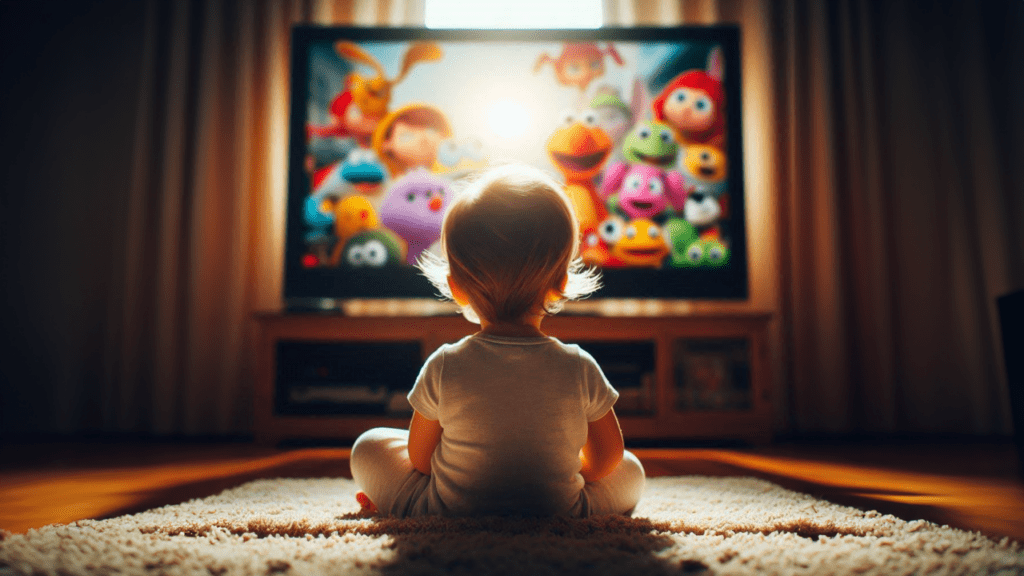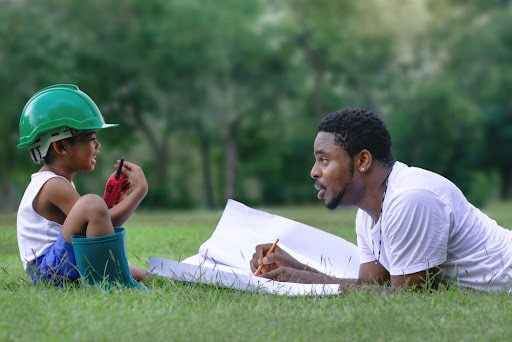Play is the Path to School Readiness, Not Screens!

As your child approaches kindergarten, you may find yourself wondering: Is my child ready? It’s a big milestone, and the task of preparing your child for the academic and social challenges ahead may feel overwhelming.
But here's something you might not have considered: Kindergarten readiness doesn’t start with iPads or educational apps—it starts with play.
In recent years, screens have become a big part of our children's lives. Educational games, videos, and apps are marketed as ways to make learning fun and easy. But research tells us that more screen time, especially for young children, may have a negative impact on your child's school readiness.
At the heart of school readiness lies the development of social, emotional, physical, and cognitive skills. These skills are best nurtured through hands-on, active play—especially outdoors—where children learn to problem-solve, communicate, and build relationships while developing gross motor skills.
Play also supports language development and creativity, while lengthening your child's attention span. None of these learning skills can be fully developed by watching a screen. Children who spend more time interacting with devices miss out on crucial opportunities to practice these skills in real life.

Research shows that early exposure to screens can diminish a child's ability to process information. Fast-paced, highly stimulating content—such as animated videos or interactive apps—can lead to shorter attention spans and difficulty focusing on slower, more sustained tasks such as listening to a teacher or completing a puzzle. In primary school classrooms, where children are required to focus for extended periods of time, attention is crucial for success.
Excessive screen time also affects eye health. Children who spend too much time staring at screens are at higher risk of developing myopia (nearsightedness). Too much screen time causes eye strain and can even change the shape of a child’s eyeballs, which can lead to permanent vision problems.
The American Academy of Pediatrics recommends no more than one hour of screen time per day for children between the ages of 2 and 5 to help ensure proper eye development. When children do engage with screens, they should be accessing high-quality content in an interactive format—with you by their side to enhance the learning experience.

Preparing dinner after a long day at work while your child is in front of a screen may be the only "white space" you get all day. But your child may pay the price for being parked in front of a screen. Chances are high that most children have already exceeded the one-hour screen-time limit recommended by the American Academy of Pediatrics by dinnertime!
You both need this time at the end of the day to wind down. So turn off your child's screen; bring in the blocks, the play dough, the baby dolls, the dinosaurs, or the hot wheels; and spend some quiet time together. It may be hard at first to change your patterns, but give it a week or two. Most likely, you and your child will begin to look forward to this time to reconnect in a peaceful, quiet way after a busy day.

Don't forget to encourage outdoor play! Children need unstructured time to play—especially outdoors, where they can develop their gross motor skills and build strength and flexibility by running, jumping, or climbing; learn about local flora and fauna; and benefit from the fresh air and stimulation of the outside world.
So instead of handing your child an iPad when boredom or restlessness sets in, consider a family walk, a visit to the park, a hike on a local nature trail, or an afternoon of free play in the backyard.
Outdoor play provides learning opportunities that no app can replicate. Whether it’s picking up a rock to examine it more closely, making a fort, or racing around the yard, outdoor play supports healthy brain development, builds cognitive and social-emotional skills, sparks curiosity and collaboration, fuels the imagination, improves problem-solving skills, fosters resilience, and enhances a child's ability to focus in an overstimulating and often distracting world.
Kids also learn how to make decisions, navigate challenges, and build friendships—skills that will prepare them well for life in kindergarten and beyond.

Kindergarten readiness isn't just about learning ABCs or 123s. It's about a child's ability to interact with peers, focus on a task, follow directions, and think creatively. While screen time might seem like a quick fix when your child is bored, it simply cannot replace the benefits of active, imaginative, and social play.
The good news? You can still make learning fun, even without screens. Reading together, exploring nature, or playing pretend games helps your child’s brain grow in ways that an app cannot.
So head outside for some active, outdoor play—and get your child ready for a bright future in kindergarten and beyond!